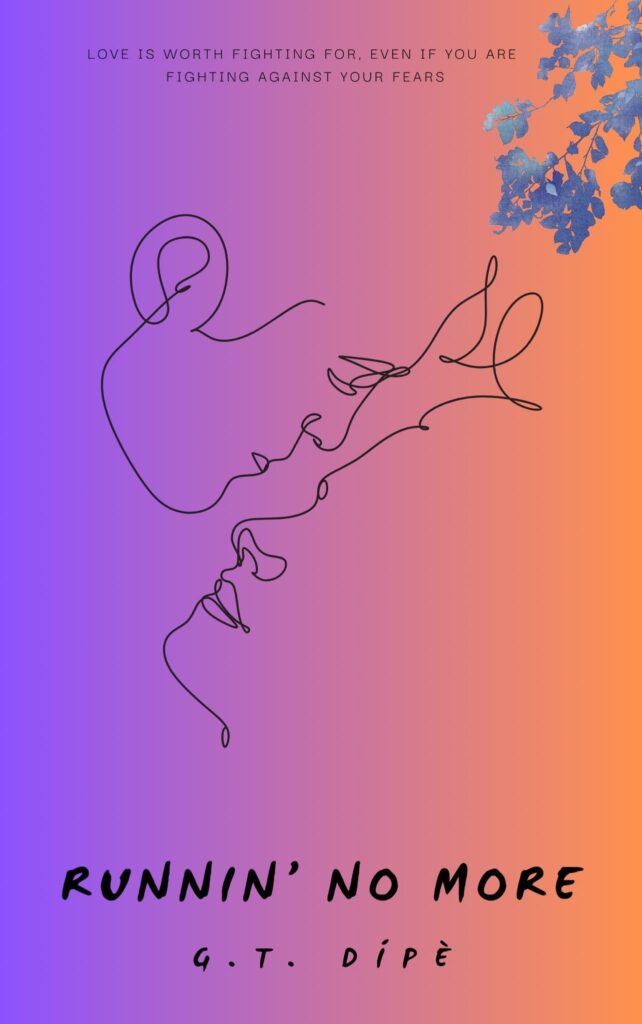by Angel Nduka-Nwosu
In reading Runnin’ No More by G.T. Dipe, one sees that all of the below forms of violence play a central role in the plot of the story. That said, the story seeks to document the truth that queer people and queer men live lives that are not merely motifs of the violence wrought against their personhood.
In 2018, fifty-seven men who were attending a birthday party in Lagos, Nigeria, were arrested. Their supposed crime? They were assumed to be gay and in the company of gay men.
Although the case was struck out two years later, the hashtag #AcquitThe57 has since become a reference when talking about the violence that queer men in Nigeria are exposed to.
The violence of being beaten. The violence of being outed by family members. The violence of having people pretend to be gay or bisexual in order to extort money and beat you. The violence of being kitoed.
That queer men in Nigeria can also seek revenge against those who believe that all queerness exists for is to be on the receiving end of heart-wrenching pain and attacks.
That contrary to what popularly obtains, queer men can find love, support, and the ability to heal from their biological family, a scenario that more often than not is not the case with several queer Nigerians.
Runnin’ No More is a romance novel by G.T. Dipe that is set in England, with some chapters and flashback scenes set in Lagos, Nigeria, and Stockholm, Sweden. The debut novel of G.T. Dipe, a Nigerian writer with interests in environmental science, follows the lives of two young men who are both running from ghosts that haunt their sexuality.
The first, Teniade Adeowo, is a Nigerian who has to leave the country due to the trauma that comes from being gay. His partner, Stefan Omar Wickström, is a Swedish man who leaves Sweden for Newcastle, England, in hopes that he can overcome the ghosts of an ex who just would not leave him be.
However, Teniade and Stefan fall in love with each other but soon discover that the true test of their love is how truthful and transparent they can be in overcoming the emotional baggage carried from their respective cities.
It is in this unfurling that the plot of the story and the themes of love, communication, and the importance of a support system for queer people are brought to the fore for the reader to observe.
While it is indeed true that literature exists about queer Nigerians, it must be said that more literature about queer Nigerian joy still needs to be written and actively documented.
In reading Runnin’ No More by G.T. Dipe, one is reminded of books like Under The Udala Trees by Chinelo Okparanta. Okparanta is often considered a pioneer of those who wrote about queer Nigerian women in a time when writing about queerness and being openly lesbian had a lot more hostility governing it.

Whilst reading Runnin’ No More, not only do the struggles of the characters remind one of the resilience of the characters in Okparanta’s books, but even more, the reader is reminded that queer people exist all around us but are often made to hide crucial parts of themselves in order to survive and avoid violence.
But Runnin’ No More is a literary force in its own right. It does something which has never before been seen in Nigerian queer literature. What it does is this: It centers the open and unabashed love and support from parents as a core pathway to healing for queer Nigerians.
To fully understand this point, one has to take into cognizance the reality that Nigeria is a deeply religious country. Older Nigerians are even more religious and less accepting of queer children than those in the younger generation.
For most queer Nigerians who wish to come out, the best they can hope for in place of open acceptance and not being disowned is the hope that their parents belong to the school of thought that preaches: “I’ll never kill a gay person, but I do not support what they do”.
This seems to be the reality of the few queer Nigerians who are openly gay and have families who show up for them in other areas but do not accept “what they do” and the fact that they are queer.
These families will never abandon their children or leave them homeless, but the thought of those children bringing home their same sex girlfriends is totally off the table. Their children who wish to come out can only hope that it is this reality they receive and not blatant conversion therapy and homelessness.
It is this that sets Runnin’ No More apart. Through the characters of Chief Adebola and Justice Remilekun Adeowo, queer Nigerians can see that it is indeed possible to not live a life of stuffing away parts of who you are in order to still get familial support.
The parents of Teniade Adeowo, through their support and care, are a template not only for how parents of would-be queer children should act towards them, but also for how interactions between families should flow when there is interracial dating between two men.
In many ways, Runnin’ No More is a testament to what happens when anyone, regardless of their sexuality, takes the bold step to go for therapy.
Therapy and mental health in general are both often shamed in Nigeria, with people outrightly insulting those who see counsellors and psychologists. For queer Nigerians who do want to see a therapist, they may hold off on that due to the fear of encountering a hyper-religious therapist who neither listens nor downgrades their experiences that are unique to those who love the same sex.
Through therapy and the support of both chosen and biological family, Teniade’s character is able to be the best version of himself not only for his family, but also for his boyfriend Stefan.
Overall, Runnin’ No More is a love letter for every queer Nigerian man and woman who is still searching for the light at the end of the tunnel. It is a love letter to the healing power of love itself. It is one that provides a roadmap to the truth that freedom, justice, and liberation are not utopias but are instead achievable realities.
For this reason, Runnin’ No More is a must-read for anyone who needs a soothing queer love story.





